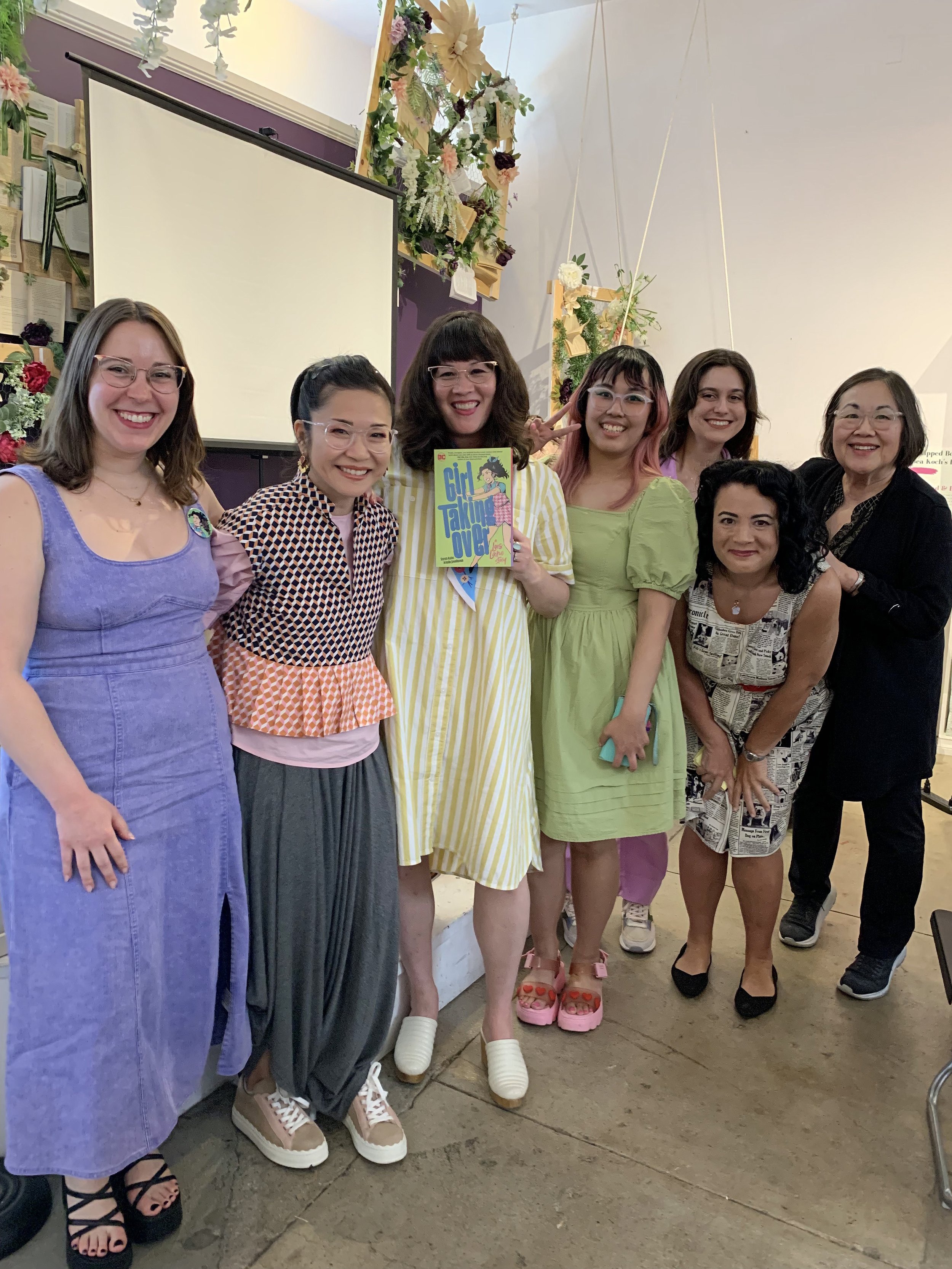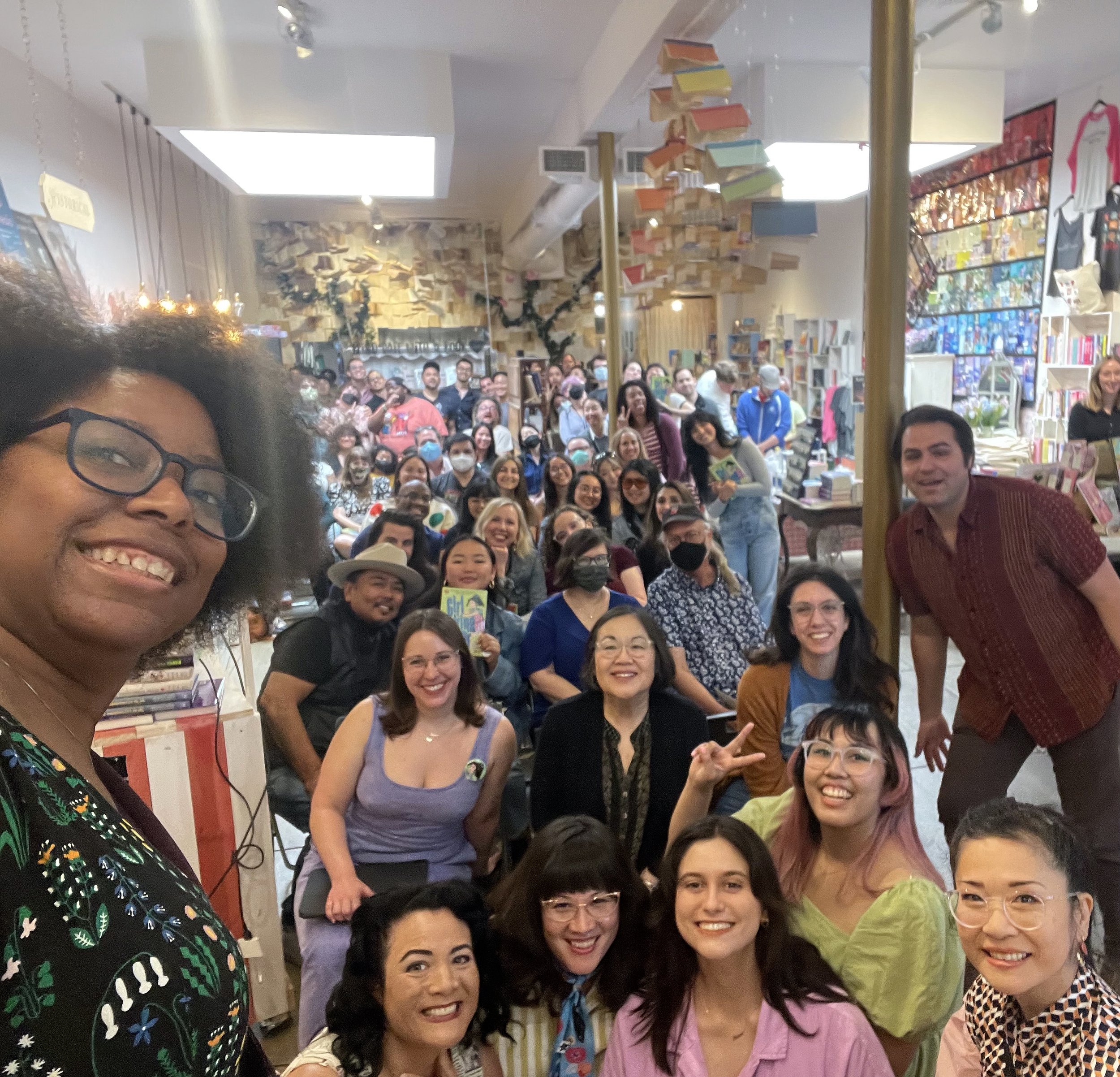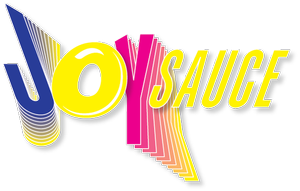Sarah Kuhn, Creator of Super Heroines
Mixed Asian Media - October 10, 2023
By Alex Chester-Iwata
Powered by JoySauce
Photo Credit: CapozKnows Photography
As a fan of comic books and graphic novels, I grew up attending San Diego’s Comic-Con each year. To this day I’m still a geek at heart, and I’ve read a lot of graphic novels. Sarah Kuhn’s Girl Taking Over: A Lois Lane Story is the first time I’ve ever felt deeply and personally connected to this genre and seen as a mixed Asian woman. I laughed, I cried, and I cheered my way through the story.
I am a huge fan of Sarah, not only for her incredible storytelling of strong and complex female protagonists, but also because she’s an awesome human. Someone who centers and champions the “geek girls.” I have to say chatting with her felt more like talking to a friend I’ve had for years.
Interview
When did you know you wanted to go into writing and specifically comic book graphic novels?
I think I probably always wanted to be a writer, but it wasn't something that I thought of as a profession. One thing I've talked about quite a bit is that I had a pretty traditional Japanese-American kind of tiger mom. She was always very worried about me, wanted me to make good choices, have health insurance, and things like that. I grew up in a really small, really white, kind of rural town. I didn't really see a lot of Asian American women being full-time writers or artists or novelists in particular.
It also took me a long time to see myself as someone who was worthy of being a main character. Even when I started writing stories, it took me a while to write Asian American characters like myself. At some point someone told me (and this is swiftly not true anymore), you know, journalism is a full-time job where you can get health insurance and still write every day. That kind of stuck with me, and I did go into journalism.
I think I was always more comfortable telling other people's stories instead of telling my own. Some friends and I had this website called Alert Nerd. It was basically about geek lifestyle. I wrote this story called One Con Glory, about a very obsessive, passionate nerd girl on a quest for this one action figure that she has sort of lost over and over again. At that time there weren’t a lot of stories that centered geeky women. If they were present, you were a sidekick, you were a love interest, or the girl who takes off her glasses and suddenly she's a supermodel. So this character that I had written, she was very angry, she was passionate, she would get in there and fight with all the boys about X-Men continuity, all these classic fights we have in the comic book store. There were a lot of geek girls who really connected to that and were like, “Finally there's something that centers me as the main character.”
I had grown up reading comics. A friend of mine who I sort of knew through the comic book community was starting this comics anthology called Fresh Romance. She emailed me and was like, “Hey have you ever thought about writing comics? I'm starting this anthology. I would love it if you would pitch something.” I was so excited because I had always wanted to write comics.
So then how were you approached for this project specifically for Lewis Lane? Did you pitch it? Were you pitched?
I believe my agent at the time was approached by DC Comics. Some of the editors there were starting this line of YA and middle grade originals. They’re not in continuity, they’re new takes on these characters, zero barrier of entry. They sent this list of characters (what you would expect), all the big characters in TV and movies. My agent said, “Is this just Barbara Gordon or can it be any Bat Girl? I know that Sarah loves Cassandra Kane because she’s the Asian Bat Girl.
I ended up doing my first graphic novel with them on the Young Reader's Line, which was called Shadow the Bat Girl. When my part was done, I met up and asked our editor Sarah Miller, “Are there characters that you don't have books for yet?” And she was like, “We’re interested in a book about a teenage Lois Lane.”
Well, Lois Lane is actually one of my favorite characters of all time. You know, a tenacious girl reporter who will do anything for a story. I imprinted so hard on the Margot Kidder version in the Christopher Reeve Superman movies. “I would love to write about Lois Lane, but do you think that DC would be open to an Asian Lois Lane?” Because I’ve really thrived and made a career out of writing Asian-American heroines and a lot of biracial heroines.
We had to go through a long approval process, and I was super stoked that the thing that stayed the same throughout all the changes was that Lois Lane was always Asian Americans, specifically biracial, Japanese American.
Photo courtesy of Sarah Kuhn
I would love to do a lightning round with you. Bat Girl or Cat Woman?
Well, I have to say Cassandra Kane, Bat Girl.
“Go to” Boba drink?
Not my caffeine of choice, but when I treat myself to a boba, it's usually a fairly basic, like, almond milk tea.
Fave TV show?
A formative TV show for me was probably Buffy.
Fave comic book?
The one that comes to mind is an issue of X-Men that is called “Ladies Night.” (It’s also the first appearance of Jubilee.)
So then who's your favorite X-Men character?
I’ve always had a big soft spot for Jean Gray Phoenix.
Dog or cat person?
Dog. I don't have my own dog, but I have a very special relationship with dogs.
Ramen, or Udon?
I think I will usually go to Ramen, but I love all noodles. I don't discriminate.
And what are you reading now?
I just finished The Enchanted Hacienda by J.C. Cervantes, and Thief Liar Lady by D.L. Soria.
Your Louis Lane is so relatable to me. I laughed, I cringed at the racism and I cried over Lois, his and Mika's friendship. I just felt so connected and seen as a mixed Asian, specifically as a mixed Japanese woman. Is this story autobiographical in any way?
I think in most things I write, there's always some element of myself. It’s probably the most personal licensed project I've written. My working at a newspaper experience was much nicer than Lois', but in my life, I’ve certainly encountered the not as nice people and experiences that Lois does. A lot of her backstory, you know, being this girl from a small town, one of the only not white faces in that town, that was certainly based on my experience. She keeps thinking, “If I'm just good enough, just so excellent at this one thing, then people will see me. They won't see a face that's different. They won't see someone that doesn't fit in. They’ll just sort of see how amazing I am.” There's that line that her friend Miki says to her at some point, she's basically like, you can't transcend racism. There’s no level of excellence you can be that is going to make people see something other than your face that doesn't fit in. I think also implied is that these are not people whose opinions you should care about. This is not acceptance. Your goal should not be proximity to whiteness or acceptance by white people. I think that was something that I've probably had to unpack in different ways over the course of my life.
There have been so many portrayals of Lois Lane since the 1930s. Are any of them more dear to your heart than others? And did you draw inspiration from any particular version?
I mentioned before, it's the Margot Kidder version from the Christopher Reeves Superman movies. I just remember watching her as a child and thinking she was possibly the most amazing person I’d ever seen. It was, like, her and Princess Leia and Marian Ravenwood were the Holy Trinity of brunettes in nerd movies at that time. What I thought was so powerful about her is that she never allowed herself to be a sidekick or just a love interest or just a girlfriend. In a lot of ways, she is the protagonist of that first movie because we are discovering Superman through her eyes.
I love how loving and supportive Lois and her mother's relationship is. I found it broke a lot of stereotypes of the Asian tiger mom. So often Asian parents are not portrayed as supportive of any child's career path in the arts. Was your mom supportive of you being a writer?
I think my mom was always very supportive of me developing as a person, pursuing my passions. She is one of the people who really supported even my early obsessive fandoms. She would take me to like Star Trek conventions and buy me fantasy novels with dragons on the cover. So in that way I think she was very supportive, but she also worried about me a lot. She did not want me to be what we think of as the “starving artist.” Unfortunately she did pass away right when I graduated from college. So she never really got to see what I ended up doing, but I do think that now things have changed a little bit. I feel like I see a little more openness from Asian parents, especially the younger generations of Asian parents who have examples we can point to, “Look, this person is a successful writer. This person is a movie star, this person is an artist.” There's more visibility for that.
Photo courtesy of Sarah Kuhn
I read in your bio that you're third generation Japanese American. I am too.
Oh, yay!
What was that like for you growing up? Did you learn Japanese as a kid? Have you had to navigate feelings of not being Japanese enough?
You know, this is something I feel like I can see more clearly now looking back as an adult. One thing that I deeply appreciate about my mom (and that I can appreciate even more now) is she was really the one who made sure that I knew about being Japanese and about being Japanese-American. She was the one who told me about incarceration. My grandparents had been in the camps. Whenever it came up. It was always, “It's best if we don't talk about this and leave it in the past.” That wasn't something that was taught in history class, so I think it was very important that she really made sure I knew. “This is what being “Sansei” means. This is how you fit into our family's bigger cultural picture. Here’s what happened to your grandparents.” Even though I was growing up in a really white community, it gave me a very solid sense of self. So I never was unaware about being Japanese. She also made sure that I knew that that was something I should be proud of.
Last year I actually finished my novel series, Heroine Complex, which was my first big foray into traditional publishings. It’s a series about Asian American heroines living in San Francisco, kind of having that second coming of age, you know: romances, eating bad junk food, singing terrible karaoke, and all those rites of passage. To be able to finish on my own terms, and to work on it through the many stages of the pandemic and everything we've been through the last few years, felt really good. I was able to give all of my Asian American heroines happy endings where I’m no longer torturing them and putting them through hard things.
Do you have any advice for aspiring specifically mixed Asian writers?
I hink you know this, but all creative industries are hard. People will probably tell you endlessly they're hard, and that is true. They're also not impossible. So if this is something you really want to do, please just keep going. I think one of the most important things for me has been to seek out community, and I mean both with people who are already doing it and people who are sort of in your peer group, who are at the same kind of writing, publishing journey level that you are. For me that's been invaluable. When I got my first book deal, I was very lucky. I had Asian American women authors who really welcomed me in and reached out to me and were like, “Hey, what can we help you with?” and they all boosted my book. They didn't have to do that.
Find that community, find your people, find other people doing cool things. You know, in L.A. we have such a great local Asian American arts community. Community is one of those things that is important for all of us, but especially if we are trying to make these very challenging careers in the arts.
End of Interview
*This interview has been edited for clarity and length
Alex (she/her) is an Actor and the Co-Founder/CEO of Mixed Asian Media. Alex received the 2023 Women of Distinction of Assembly 69th of California award and last year was one of the Asian Hustle Network’s top 50 Unsung Heros. Some acting credits include: Broadway’s How the Grinch Stole Christmas, Gillian in This Space Between Us Off Broadway’s Keen Company. TV credits include: New Amsterdam, The Good Fight, and The Closer. Alex is a board member of ACE Next Gen's NYC Chapter and of Strong Asian Lead. She is a community leader for the Lunar Collective and she is also part of the 2023 Jews of Color cohort The Workshop, she also also serves on the advisory board of her alma mater St. Mary's LEAP Program and is a member of Gold House.
JoySauce is a multimedia network dedicated to celebrating the full spectrum of Asian American and Pacific Islander narratives. The site boasts a vibrant library of content around entertainment, lifestyle, food, travel, culture, relationships, art, and education in the form of exciting new streaming shows, movies, standup comedy, provocative podcasts, and a suite of editorial updated daily.






